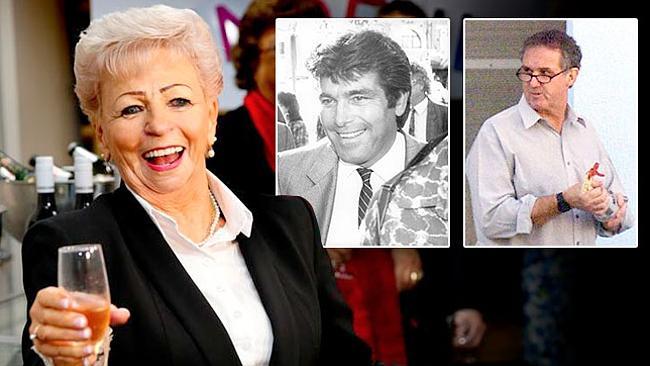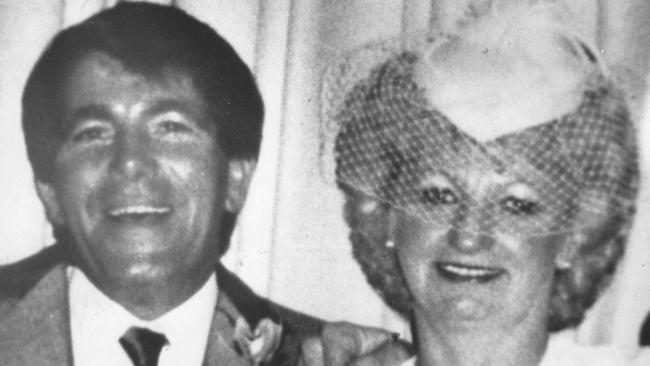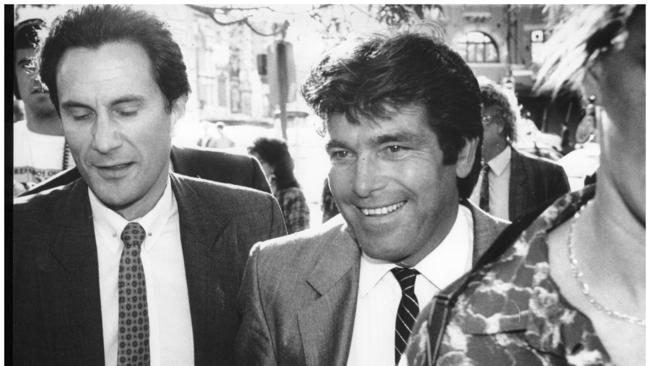Roseanne Beckett: How malice cost a mother her basic rights
ROSEANNE Beckett was this week awarded $2.3m over her wrongful jailing. The origins of her malicious prosecution date to a 1983 Christmas Day fire and her involvement with a police officer.

NSW
Don't miss out on the headlines from NSW. Followed categories will be added to My News.
FROM the embers of a delicatessen fire on Christmas Day 1983 a cloud of smoke formed that would hang over, and later engulf, Roseanne Beckett for more than 30 years.
It is from this blaze at her Taree business that she meets police officer Peter Thomas, a man a Supreme Court judge said this week saw Ms Beckett as “his nemesis” — his involvement throughout her case a large reason why she was awarded $2.3 million in damages for malicious prosecution after a long fight following her acquittal on charges of soliciting the murder of her husband.
“Ms Beckett would appear at all times up until the fire in her delicatessen in Taree in 1983 to have been an ordinary citizen going about her business in an unremarkable way,” Justice Ian Harrison said in his judgment, which saw Ms Beckett awarded legal costs likely to exceed $1 million.
“From 25th December that year, however, things changed dramatically and for the worse. It is difficult to understand either why or how these things happened. The only thing that is clear is that the consequences for Ms Beckett and her family were nothing short of disastrous.”

After the fire almost destroyed the business she owned with her then-partner Douglas Annetts, Thomas charged Ms Beckett with arson, but the offences were no-billed and didn’t proceed to trial.
Ms Beckett complained to NSW police internal affairs and the ombudsman about Thomas’s conduct, a dispute which would last until 1987 — the same year she married Barry Catt and the final seeds of her misfortune were sown.
The marriage was fraught with domestic violence and police were called to the home on more than one occasion. She applied for an AVO against him in 1988.
It was in 1989 that Ms Beckett and Thomas met again, after Catt claimed his wife had stabbed him and, on another occasion, that she hit him with a cricket bat. Catt and Thomas knew each other within the small community.
At Thomas’s behest, an investigation was brewing against Ms Beckett, including statements from some of Catt’s friends alleging she carried a pistol and a handgun in her bag and had split her husband’s head open with a rock. Another of the charges laid against Ms Beckett concerned an alleged approach made to a man, James Morris, at the Taree RSL on a Friday night in 1989.
Morris had drunk five schooners of beer when it was alleged Ms Beckett attempted to solicit him to murder her husband. This alleged conversation was not reported to police for almost a month.

After a tip-off following Catt’s consultation with a psychologist, containers of orange juice and milk taken from Catt’s mechanic repair business were tested for lithium and returned a positive result. Detective Thomas had a direct role in the transportation of the drink containers for testing.
Ms Beckett was arrested, handcuffed and stripsearched on August 24, 1989. She stood trial in 1991 on nine charges and was convicted of eight offences and sentenced to a total jail term of 12 years, with a non-parole period of 10 years and three months.
Her first attempt at an appeal in 1993 was dismissed.
She has consistently denied approaching Morris to kill Catt, or offering another man $20,000 to “bump him off”, or that she attempted to poison Catt’s food or drinks. But in 2001, with just months to go on her minimum sentence, she was released on bail after evidence came to light suggesting she had been framed by planted evidence.
The appeal court ordered she stand trial again.
After the DPP announced in 2005 there would be no more proceedings against Ms Beckett following a damning Davidson inquiry about how the evidence against her had been collected, she believed it cleared the way for her to seek damages for malicious prosecution. Instead the case took another unlucky turn for Ms Beckett, referencing case law almost 100 years old — in order to win compensation, the Supreme Court initially ruled in August 2011, she would have to first prove she was innocent.

A malicious prosecution case was this year lodged by Gordon Wood, three years after he was released, having been ruled to be not guilty of the 1995 murder of Caroline Byrne. As the Court of Criminal Appeal outright acquitted Wood, rather than ordering a retrial as they did in Ms Beckett’s case, he won’t have to mount the same High Court challenge for the damages claim to proceed.
Justice Harrison began this week’s comprehensive, 177-page judgment with a quote from Roman philosopher Boethius: “If I have fully diagnosed the cause and nature of your condition, you are wasting away in pining and longing for your former good fortune”.
He saved his most damning critique for Thomas, a man he described as being “sullied” by his relentless pursuit of Ms Beckett, a drive “to get square” absolutely at odds with a police officer’s necessary objectivity.
“Ms Beckett says that if she had not been prosecuted by Detective Thomas, tried and imprisoned for over 10 years, her future might have been like any other normal woman, mother, or member of a community,” Justice Harrison said. “In the 10 years of her incarceration, Ms Beckett was denied the basic human right of liberty and she was separated from her family, her friends and her community.
“She was deprived of her role as a mother. She lost the opportunity to engage in social and romantic relationships.
“She was denied a valuable working life that may have brought with it not only pecuniary profits but also the intangible benefits of doing well in one’s occupation.
“The enormity of this loss is made still more staggering by the significant period of time for which that loss was suffered.”
Neither Peter Thomas nor Barry Catt lived to see Ms Beckett’s triumph in her damages claim.


